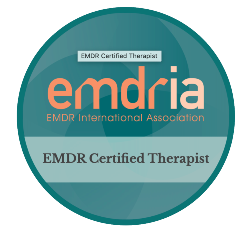Healing Grief
Recovering from the loss of someone you love is one of the hardest experiences to go through in life, and it is an experience most of us will encounter at some point. Healing grief and finding a way to cope with the deep emotions that loss elicits can be overwhelming, and if not dealt with properly, it can lead to feelings of isolation and hopelessness. It is imperative to take time to nurture your wounds following loss, but it is equally important to do it in a way that will eventually create feelings of new hope and happiness for the future. The reality is that grieving itself is important. Being sad about the loss, crying and reminiscing are all valuable tributes to your loved one, and cathartic in the grief process. Nevertheless, there is a time when the sadness needs to evolve into the action of healing.
Many people have found solace in the wake of loss or disaster by taking action and improving their life, the world, or the lives of others as a tribute to their loved one. Take for example the Susan G. Komen foundation, established by Susan G. Komen’s family following her death from breast cancer. Another example is the establishment of Mothers Against Drunk Driving (MADD), or on a smaller scale, someone who speaks publicly about a tragic loss in hopes of preventing further unnecessary loss or just in hopes of motivating individuals to make the most out of every day. There are even methods for healing grief that are more personal, less public, and yet still meaningful in the process of recovering from grief. It is not to say that there may not always be some lingering sadness when reflecting on the memory of someone who you loved and lost. However, letting the spirit of living resound within you can help in healing grief and adding a new and very fulfilling meaning or purpose to your life. The following are some suggestions that may help get you started on the path to feeling better:
- Start by writing about your loved one. Create a memoir or a poem. Celebrate their life. If you could describe your best memory of the person, what would it look like?
- Consider how this person impacted your life. What did you learn from them? What did you love about them? Did you grow or change as a result of the relationship you had with them? For example, are you more caring? A better listener than you used to be? Are you stronger?
- When we lose someone, it changes what is called our ‘assumptive world.’ That is the world as we know it and expect it to be. We may have considered it to be predictable, reliable and safe. We may have acted as though the person would always be there, and now they are not. Losing this person may call into question many things we had previously taken for granted or ‘assumed’ and now we have to restructure or create a new perspective about how the world works and what we consider to be predictable. What does your new assumptive world look like? Looking through a lens of optimism, what could your new assumptive world look like?
- Consider the relationship with this person as part of your story, the story of your life. Did they encompass a chapter or many chapters? Think of how you would like the rest of your story to read. How can your experiences with your loved one create meaning in your future, even though they are no longer here? How can their memory live on through you?
- Take positive action. Reach out to others. Embrace life and enjoy each day. Laugh with friends, smile with friends, and spread the spirit of meaningfulness to those around you.
The process of healing grief can take time. However, if you are feeling it is simply too difficult to manage, reach out and talk to someone. Being in the presence of friends and family can help, or take some time to talk with a professional. There are many wonderful therapists and support groups that can assist you in walking through what can be such a tremendously difficult time. There is life after loss. However, remember that it takes time, patience and often help, to get through it and begin to enjoy all that life has to offer.
Click here for more information on Depression Treatment .
Tamra Hughes, MA, LPC https://greenwoodcounselingcenter.com





